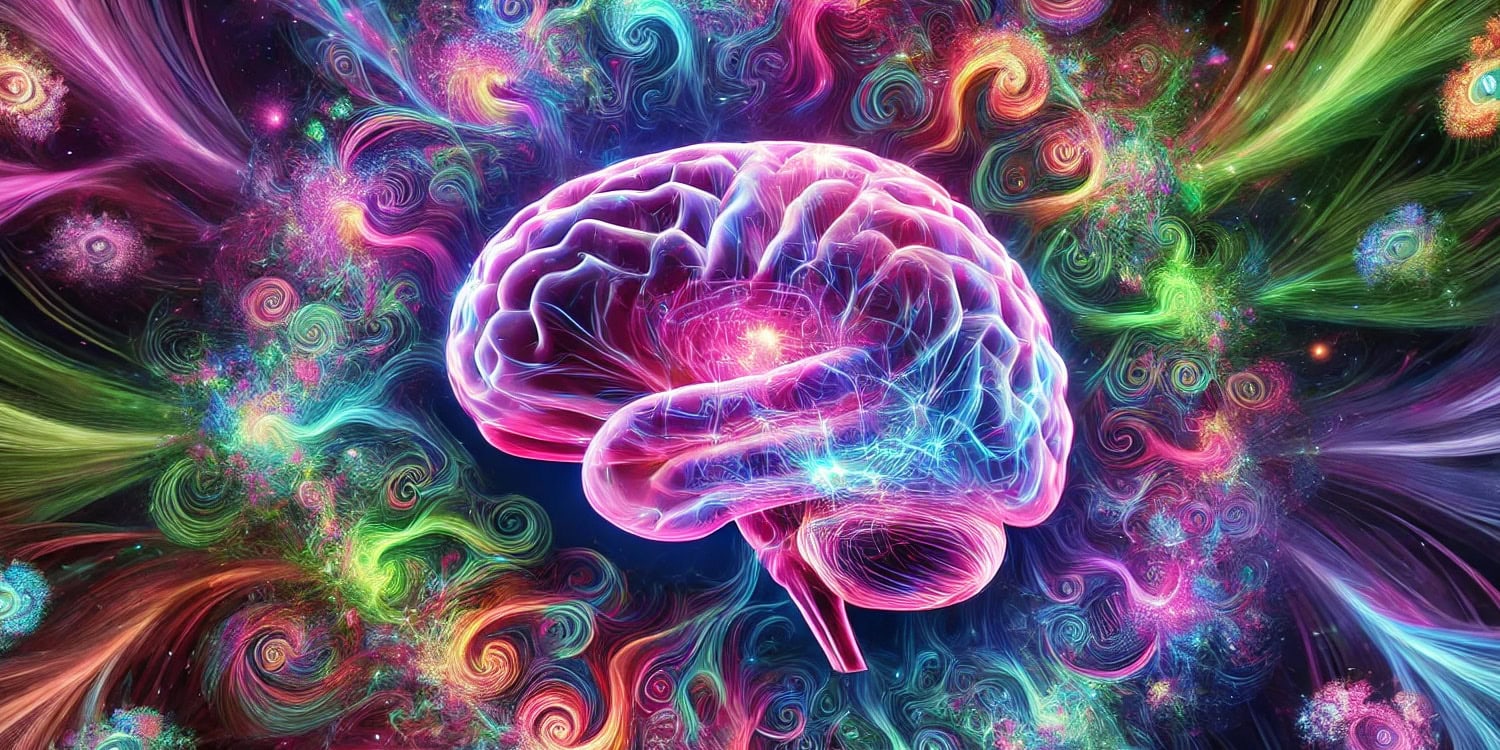In a new study published in Scientific Reports, researchers have provided the most extensive analysis to date of how classic psychedelics (such as LSD and psilocybin) and the drug MDMA (often known as ecstasy) affect cognitive functions during and after use.
The findings reveal that these substances have distinct impacts on the brain, with psychedelics impairing attention and executive function, while MDMA primarily disrupts memory. Interestingly, the study also suggests that psychedelics might boost creativity and executive function after the drug’s immediate effects have worn off—an effect not observed with MDMA.
The use of psychedelics and MDMA has surged in both recreational and therapeutic settings, leading to a growing need for clear guidelines on their cognitive effects. While these substances are gaining attention for their potential benefits in mental health treatments, there is also a concern about their risks, particularly when used outside of controlled environments.
Classic psychedelics are known for causing profound alterations in perception and cognition, often described as a “trip,” where users experience vivid hallucinations, altered thought patterns, and a distorted sense of time and space. MDMA, on the other hand, is famous for its ability to induce feelings of empathy, emotional closeness, and euphoria.
Despite their popularity, the acute effects of these drugs on cognitive functions such as memory, attention, and executive function (which includes skills like problem-solving and planning) were not well understood, especially in a direct comparison between the two.
To address this gap, the researchers conducted a meta-analysis — a statistical approach that combines results from multiple studies to identify patterns and draw more robust conclusions. This study is the first of its kind to compare the cognitive effects of psychedelics and MDMA in such detail.
“The acute cognitive effects of psychedelics are important to investigate to strengthen harm reduction and prevention efforts. Additionally, specific cognitive effects may be important for the therapeutic use of psychedelics such as the memory effects of MDMA,” said study author Lukas A. Basedow, a postdoctoral researcher at Philipps-University Marburg.
Basedow and his colleagues began by performing an exhaustive search of the scientific literature, scouring databases like PubMed, Web of Science, and Embase for studies that investigated the cognitive effects of psychedelics and MDMA. They also included data from clinical trial registries. Ultimately, they included 122 studies in their qualitative review, with 31 of these studies providing data suitable for quantitative analysis.
The analysis focused on three key cognitive domains: memory, executive function, and attention. Memory refers to the ability to store and recall information, executive function involves higher-level cognitive processes such as planning and problem-solving, and attention refers to the ability to focus and maintain concentration. The researchers categorized the studies based on when cognitive tests were administered—either during the acute effects of the drugs (while the substance was still active in the body) or during the subacute phase (within 24 hours after the drug’s effects had subsided).
The study revealed distinct differences in how psychedelics and MDMA affect cognitive functions. During the acute phase (i.e. during the “trip”), psychedelics were found to impair attention and executive function. This means that individuals under the influence of psychedelics might struggle with tasks that require sustained focus or complex decision-making. However, memory was less affected by psychedelics, with some studies showing no impact on memory performance while others reported impairments.
Interestingly, the researchers found that once the acute effects of psychedelics had worn off—typically after 24 hours—some cognitive functions appeared to improve. In particular, they observed that executive function and creativity might be enhanced during this subacute phase, often referred to as the “afterglow” period. This suggests that psychedelics may have a unique ability to boost certain cognitive functions after their immediate effects have dissipated.
In contrast, MDMA primarily impaired memory during the acute phase, with little to no effect on attention and executive function. This means that users of MDMA might find it difficult to remember new information or recall details while under the influence of the drug. Notably, the study found no evidence of an afterglow effect with MDMA; once the drug’s effects wore off, cognitive functions returned to baseline without any noticeable improvement.
These findings highlight the different cognitive profiles of psychedelics and MDMA. Psychedelics appear to temporarily disrupt attention and executive function but might enhance these abilities after the acute effects have subsided. MDMA, on the other hand, primarily impacts memory during the acute phase, with no lasting cognitive benefits observed after the drug’s effects wear off.
But the researchers observed a significant degree of variability in the findings across the studies included in the meta-analysis.
“The most surprising finding was the heterogeneity of the results,” Basedow told PsyPost. “While we detected patterns of impairments, studies also frequently showed no impairment due to psychedelic, indicating that some people are able to retain their cognitive abilities under psychedelic influence.”
This variability highlights the complexity of how these substances affect cognition. The effects of psychedelics and MDMA do not follow a straightforward, predictable pattern and can differ greatly depending on factors such as the context in which the drugs are used, individual differences among users, and the specific methodologies employed in the studies. This complexity poses challenges for drawing definitive conclusions about the cognitive impacts of these substances.
The researchers noted that these findings have important implications for both recreational and therapeutic use. For recreational users, understanding these cognitive effects can help inform safer use practices, such as avoiding tasks that require attention or decision-making while under the influence of psychedelics.
In therapeutic settings, the potential afterglow effect of psychedelics could be leveraged to enhance the effectiveness of therapy sessions conducted after the psychedelic experience. Meanwhile, MDMA’s impact on memory could be beneficial in therapies for conditions like Post-Traumatic Stress Disorder (PTSD), where disrupting the reconsolidation of traumatic memories is a key therapeutic goal.
“The most important caveat is the heterogeneity mentioned above,” Basedow said. “Not only did the results differ between studies, the applied methods were also highly different. We tried to summarize effects across different tests, but future studies should focus on using the most common neuropsychological tests. In future studies, it would be great to compare different psychedelics (e.g. LSD and psilocybin) as well as MDMA directly on the same tests and under the same conditions to properly distinguish the effects of different substances.”
The study, “Cognitive functioning associated with acute and subacute effects of classic psychedelics and MDMA – a systematic review and meta-analysis,” was authored by Lukas A. Basedow, Tomislav Majić, Nicklas Jakob Hafiz, Engi A. E. Algharably, Reinhold Kreutz, and Thomas G. Riemer.




